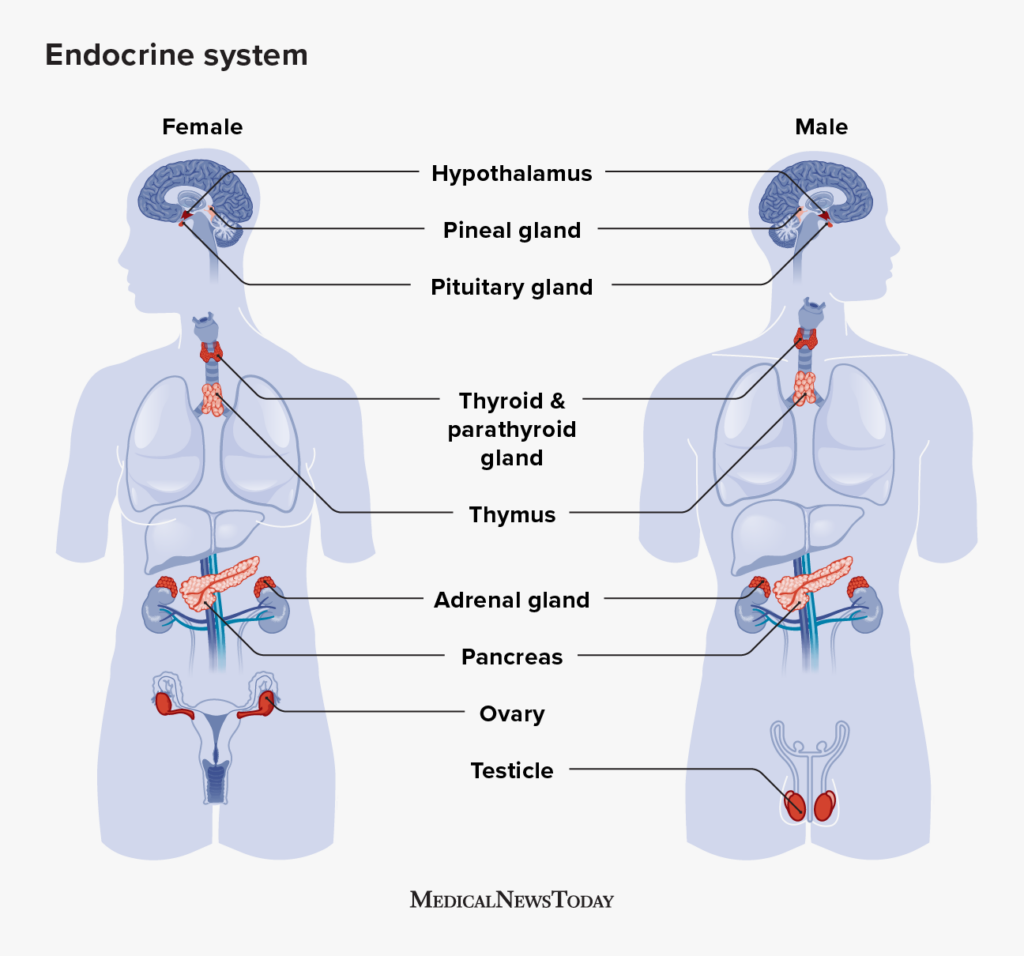The Scientific Research Behind Hormone Policy: Insights From an Endocrinologist
The Scientific Research Behind Hormonal Agent Policy: Insights From an Endocrinologist supplies a thorough expedition of the elaborate procedures included in hormone law. Whether you are a clinical professional looking for a much deeper understanding of endocrine function or a specific interested in discovering about the scientific research behind hormonal agent regulation, this publication is an important resource.
Hormonal Agents and Their Functions
Hormonal agents play important duties in the guideline and coordination of numerous physical procedures within the body. These chemical messengers are created by endocrine glands and are released right into the blood stream, where they travel to target cells or body organs to exert their effects. The features of hormonal agents are varied and encompass virtually every element of human physiology.
One of the main features of hormones is to keep homeostasis, which is the stable inner environment essential for the body to work optimally. For instance, insulin, a hormonal agent produced by the pancreatic, regulates blood glucose degrees by advertising the uptake and storage space of sugar in cells. Another hormone, cortisol, aids the body respond to anxiety by raising blood glucose degrees and subduing the immune system.
Hormonal agents additionally play essential functions in development and development. Development hormone, produced by the pituitary gland, promotes the development of bones and tissues, while thyroid hormones control metabolic rate and affect the development of the nerve system - Endocrinologist. In addition, reproductive hormonal agents, such as estrogen and testosterone, are accountable for the development and maintenance of secondary sexual qualities and the law of the menstrual cycle
The Endocrine System: A Summary
Playing a vital duty in the law and control of physical procedures, the endocrine system is a complicated network of glands that generate and launch hormonal agents right into the blood stream. These glands, including the hypothalamus, pituitary gland, thyroid gland, adrenal glands, pancreas, ovaries, and testes, secrete hormonal agents that work as chemical carriers, influencing various bodily features. The endocrine system functions in combination with the anxious system to maintain and manage homeostasis, making certain that the body's interior environment remains steady.
It creates hormones that boost or prevent the launch of hormones from the pituitary gland, which in turn manages the activity of various other endocrine glands. The thyroid gland, located in the neck, generates hormones that manage metabolic process and power balance.

Regulation of Hormonal Agent Manufacturing
The law of hormone production entails an intricate interplay in between different glands and feedback devices within the endocrine system. Hormones are chemical carriers that play a vital role in keeping homeostasis and coordinating various physiological procedures in the body. The production of hormonal agents is firmly regulated to make sure the correct performance of the endocrine system.
The hypothalamus, situated in the brain, works as a key regulatory authority of hormone production. It launches hormones that hinder the production or promote of hormonal agents by the pituitary gland, which is commonly referred to as the read here "master gland" of the endocrine system. The pituitary gland, consequently, generates hormones that act on numerous target glands throughout the body, promoting them to generate and release particular hormonal agents.
Comments systems likewise play an important function in hormone guideline. When hormone levels increase above or fall below the optimal range, the body activates systems to either reduction or boost hormone production, respectively, to recover equilibrium.
Feedback Loops in Hormonal Agent Law
Responses loopholes play an important function in the policy of hormone manufacturing. These loopholes involve a series of interactions in between the endocrine glands, hormones, and target body organs to keep homeostasis in the body. There are two kinds of responses loopholes: negative responses and favorable feedback.
Negative feedback is the most typical kind of responses loophole in hormone regulation. It functions by noticing the degrees of a hormone in the blood and adjusting hormone manufacturing appropriately. When hormonal agent levels climb above a certain limit, the hypothalamus in the brain indicates the pituitary gland to decrease hormonal agent production. This, subsequently, minimizes the stimulation of the target organ, bring about a reduction in hormonal agent secretion. On the other hand, when hormone degrees go down below the limit, the hypothalamus stimulates the pituitary gland to increase hormonal agent production, recovering balance.
Positive responses loops, on the other hand, magnify hormonal agent production. This happens when a hormonal agent stimulates the release of even more of the very same hormone, causing a quick increase in its levels. Nevertheless, favorable responses loops are less typical in hormonal agent law and are typically included in details physiological processes, such as childbirth and lactation.
Factors Influencing Hormone Balance
Aspects affecting hormonal agent equilibrium consist of nutritional options, way of living practices, and ecological exposures. These aspects can have a substantial influence on the fragile equilibrium of hormonal agents in the body, influencing numerous physical procedures and overall health.
Dietary choices play a crucial duty in hormone policy. Consuming a well balanced diet that consists of a selection of nutrients is necessary for maintaining hormonal agent balance.
Lifestyle behaviors, such as workout, sleep patterns, and stress and anxiety management, likewise influence hormone equilibrium. Regular exercise assists regulate hormonal agent levels, advertises total wellness, and reduces the threat of hormonal problems. Sufficient rest is important for hormone manufacturing and regulation, as interrupted sleep patterns can bring about discrepancies. In addition, chronic stress and anxiety can dysregulate the hypothalamic-pituitary-adrenal (HPA) axis, a crucial gamer in hormone guideline, resulting in a waterfall of hormonal discrepancies.

Verdict
In final thought, comprehending the scientific research behind hormonal agent regulation is important for keeping overall health and wellness and health. Hormones play important duties in numerous physical features, and their production is regulated by intricate responses loopholes.
The Science Behind Hormonal Agent Guideline: Insights From an Endocrinologist offers a detailed exploration of the complex processes included in hormone policy. It produces hormones that inhibit the launch or boost of hormones from the pituitary gland, which in turn regulates the activity of other endocrine glands. It launches hormones that hinder the production or promote of hormonal agents by the pituitary gland, which is typically referred to as the "master gland" of the endocrine system. The pituitary gland, in turn, generates hormones that act on different target glands throughout the body, boosting them to produce and release certain hormonal agents.
When hormone levels climb over a certain threshold, the hypothalamus in the mind signifies the pituitary gland to decrease hormone production. (Endocrinologist in cedar park)